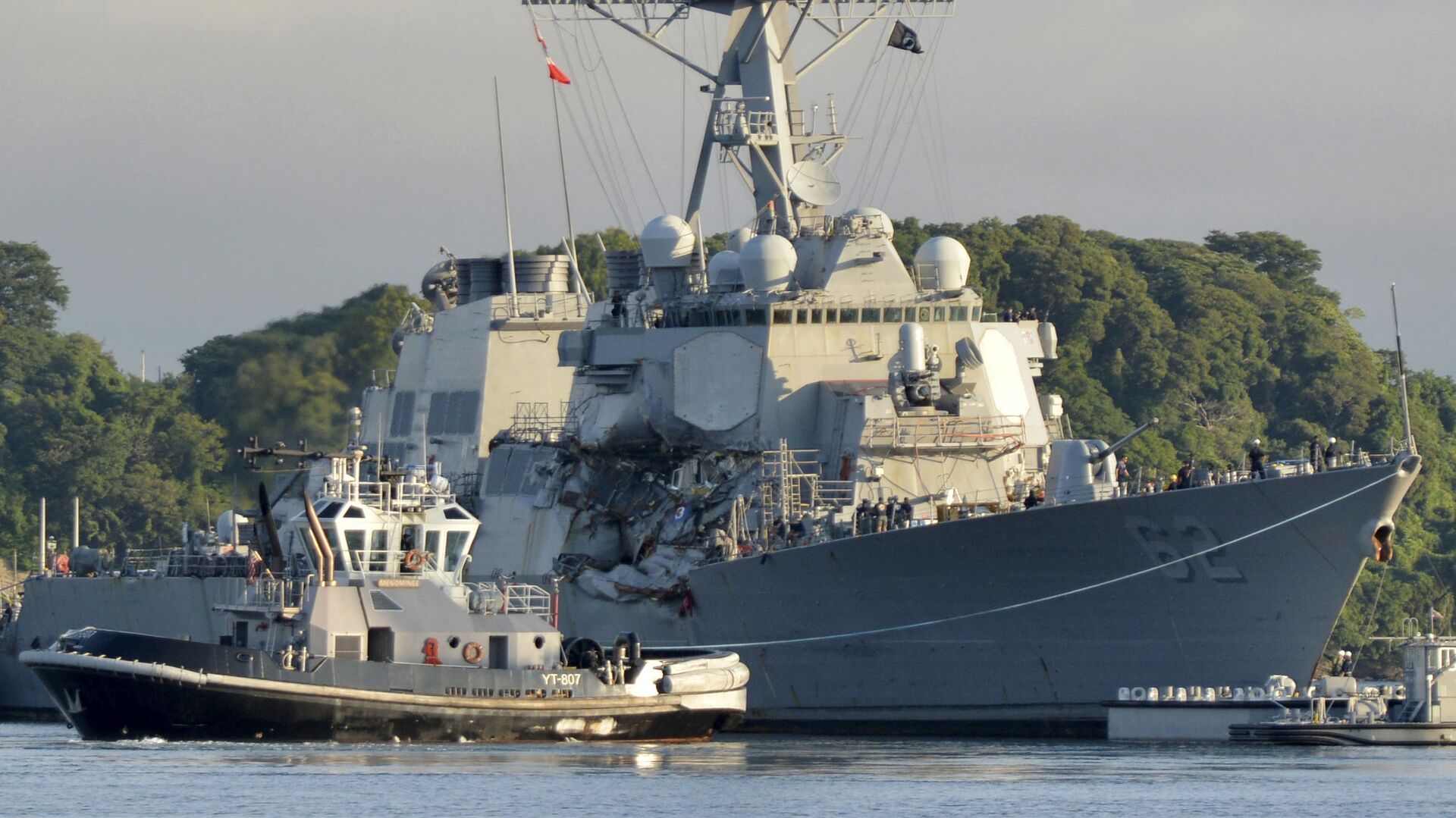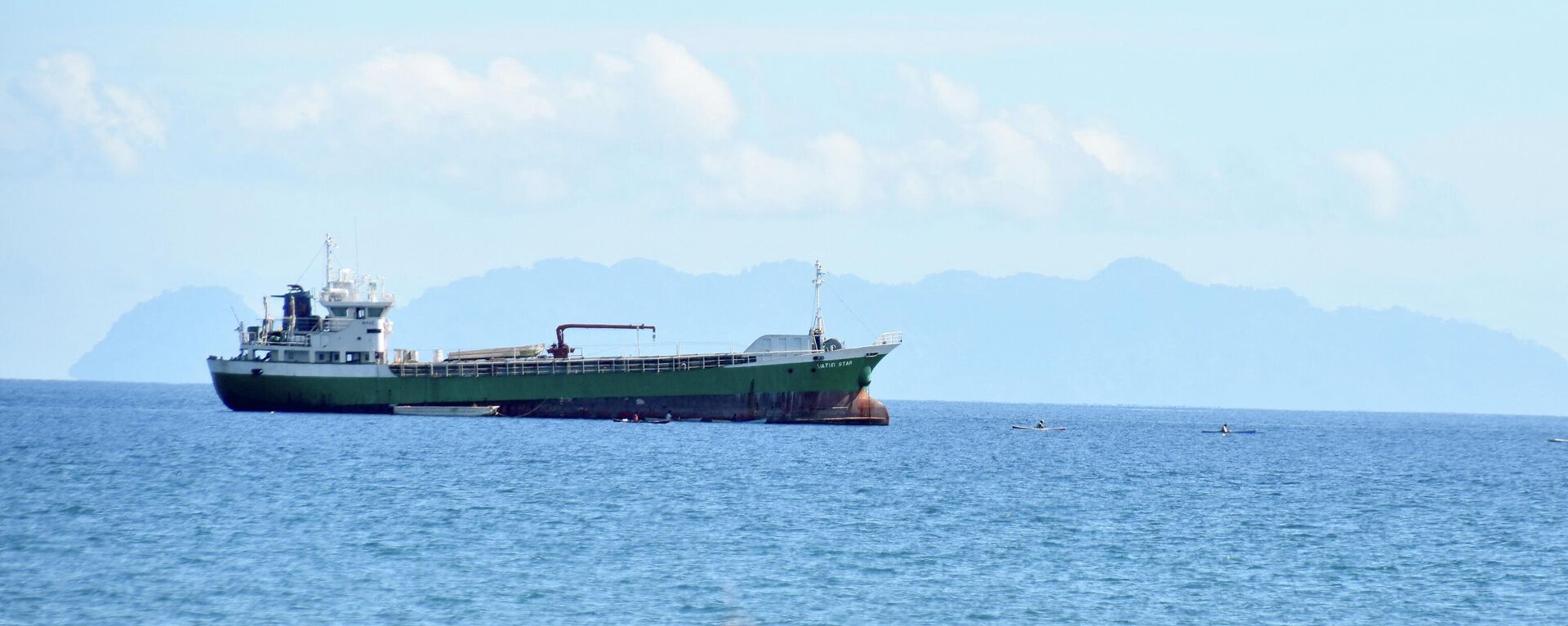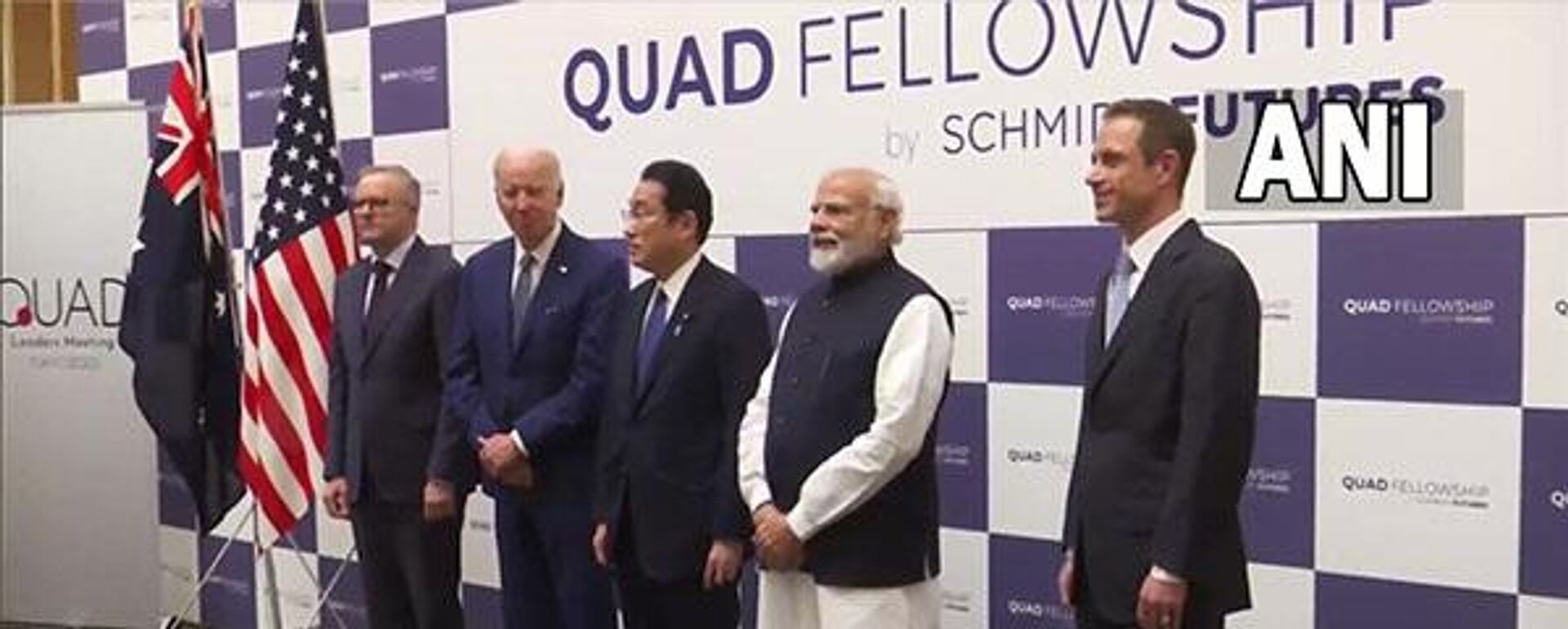US Aims to ‘Knit Up’ China in Pacific Islands ‘Scramble’ With Papua Defense Deal

© AP Photo / MC1 Peter Burghart
Subscribe
Although Washington’s new defense deal with Papua New Guinea (PNG) doesn’t mention China by name, it’s clearly aimed at curbing Chinese influence in the region off Australia’s coast, according to one scholar.
On Monday, the United States and Papua New Guinea formally signed a deal to allow the US access to PNG’s airfields and ports, including boarding each others’ vessels, sharing technical expertise, and satellite surveillance. The island nation sits less than 100 miles from Australia at its closest point, of which it was a colony until 1975.
Dr. Joseph M. Siracusa, a renowned US professor of history and international diplomacy who serves as dean of Global Futures at Curtin University, and the author of more than 30 books on diplomacy and international security, told Sputnik on Monday that the deal was part of a larger attempt by Washington to undermine Chinese influence in the region, especially in the wake of a similar deal between China and the Solomon Islands, which sit to PNG’s east.
“They're playing a zero-sum game in the area. They don't want China in Papua New Guinea and they're very disappointed that the Chinese were able to make a major inroad into the Solomon Islands,” Siracusa said.
“These are small islands and, you know, they're playing off both sides against the middle, as you do when you have a great power competition and smaller powers do what they can. It's a matter of influence. The American intent is to knit up or to continue the containment of China. And China's position is mainly to infiltrate these islands, those for its network of influence and more importantly, for its ports and harbors and its geographic, geographical, geopolitical position. It's sort of like a scramble,” he explained.
“The Americans think that China and Russia are in cahoots together to penetrate the South China Sea, these areas, and that when they're resisting the Chinese, they are resisting the Russians,” he asserted. “They don't know any Chinese-Russian history, do they? If they knew a little more about Chinese-Russian history, they would think there was less of this love affair than they imagine.”
Siracusa explained that many nations in the region, from small island states like the Solomon Islands to major powers like India, are more interested in solving their own problems, such as mitigating climate change or developing their infrastructure, and are happy to play Beijing and Washington off of one another to get what they want.
“They're not so much interested in playing the big game of politics. They want to see what they can get out of both the West and the East in terms of who could provide the greatest amount of help for mitigation or adaptation, and they'd like [that] from the Americans, not bases or ships.”
“They'd like reparations or some way to keep the islands from sinking. They have very mixed motives. The American motives are purely strategic. And the islanders are a mixed bag here, because it's not often that the big powers even think about them - and when they do, it's too late. So they're sort of maneuvering,” he said.
“The Americans overreacted to the Solomons by promising them an embassy. I mean, a full scale embassy in the Solomon Islands is a waste of money and getting involved in the South Pacific. What they showed their Australian allies is that they're very concerned about Australia's concerns about what goes on here. What's the point of buying a long range nuclear-powered submarine if you're going to have a Chinese naval base one day 80 kilometers away? But it doesn’t make any sense. The Americans are very keen in assisting the Australians in pushing the Chinese as far away from those sea lanes of communication.”
“That is most of America's diplomacy in the last 20 years,” Siracusa said.
“Most of America's solutions to these problems are military solutions. They use the military to get in and out of places, they use the military to establish places. The United States is very, very obsessed with power, either demonstrating it, holding it, or changing things. And so it's very hard for the Chinese to match the American maritime assets. The Chinese may have technically more ships, but they don't have more tonnage. So the Americans use their military might to get involved in these places. And they have offered people a measure or some kind of protection, perhaps [it] makes them feel better. But as I say, it won't last long. This is a very short interest. They are really going to stay there a couple of hours before going on to something else. But the Americans have overreacted to what's going on in the South China Sea because it looks like the Solomon Islands were selling the place.”
By comparison, Siracusa said the Chinese “mostly buy influence in most of these places,” adding that “China doesn't have to invade anything.”
“What the Americans and the Australians and others are trying to do is to displace this Chinese influence and maybe replace it with Western or Indian influence. That is, to make these nations less dependent on Chinese money and goods and services. Now it's an all around competition, beginning with the military and ending up with the socio and the economic,” he said.
“Well, New Guinea has a lot of deep water ports and a lot of lovely places for the Navy. Of course, the United States Navy fought in the waters in and around PNG during the Second World War when the Japanese Imperial Navy was coming very close to defeating that part of the world.”
He predicted that the South Pacific would “become militarized” in the next five-to-seven years, as the Americans pour money into keeping China out.
“When the Chinese started to get special privileges in the Solomons, one of them was a potential naval base there,” he explained. “And that naval base, as far as the Australians are concerned and the Americans are concerned, are for hostile purposes.”
Siracusa noted that “when it comes to the Chinese in the neighborhood, the Americans equate Chinese capabilities with Chinese intentions. So you might have a Chinese capability to put ships in the area or an influence in the area. What are they going to do with it? Well, the Americans have come to the conclusion that the Chinese are only involved in these particular pursuits and in the name of a bigger picture, in the larger order of things, and that is Chinese mastery of this part of the Pacific. It's hard for this area not to become militarized. Almost impossible.”



